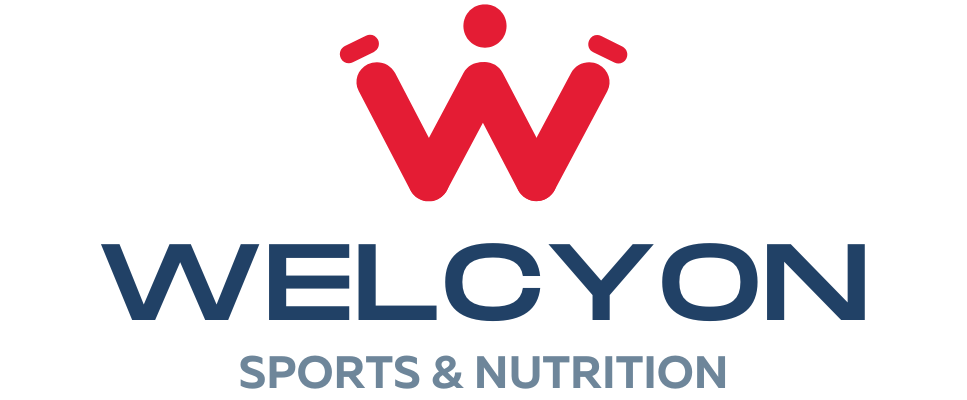
Riddhi Rayekar ‧ Nutritionist & Health Coach
Riddhi is a certified nutritionist with more than a decade of experience of changing people's lives with nutrition and diet. She love to help people with clients to achieve their personal goals.
Protein is a macronutrient that provides your muscles with the essential amino acids needed to grow and repair muscle tissue.
Protein is most critical building block in building muscle and its very difficult to build muscle without consumption of proteins in any form.
It is a common assumption that to build muscle, you need protein supplements. That is not necessarily true. It is possible to build muscle without protein supplements, but it will be much more difficult.
The most popular way to get protein into your diet is through food, but many people turn to protein supplements, such as protein powder, bars, shakes, and snacks to get more of it.
Here's everything you need to know about whether or not it's possible to build muscle without consuming any protein-based products.
Do We Need Protein for Muscle Growth?
In a short answer, yes. Protein is the building block of muscles. [1]
Protein gives strength and endurance to your muscle fibers, this is crucial for muscle growth and repair.
As you exercise, your muscles break down, which means they need protein to rebuild. Without protein, you will not be able to muscle gain or repair muscle tissue.
However, it can be difficult or impossible for an average person to consume enough protein from food alone, so many people supplement their diet with protein powders and bars.
How Much Protein Do You Need To Build Muscle?
The general guideline is that women should consume about 46 grams (g) of protein per day and men should consume about 56g. [2]
The amount of protein you need to build muscle depends entirely on your goals.
If you are trying to gain muscle, you are going to need at least 0.8 grams of protein per pound of body weight per day. [2]
If your goal is to lose fat or maintain your current weight, you will need even more protein. This is because muscle tissue breaks down when you exercise and repairing the muscle takes a lot of energy.
Is Protein Powder Necessary to Build Muscle?
To build muscle, you must be consuming enough protein in your diet and taking a supplement if needed to get the necessary amount of protein. [3]
Protein is found in many foods. But protein supplement is a great alternative, especially for people that work out.
You will find that protein supplements are easy to prepare, has a delicious taste and it is highly nutritious – with different brands offering anywhere from 14 – 27 grams of protein per serving. Some of them have a delicious taste.
Do You Need Protein Post-Workout?
Protein powder is recommended for every individual involved in any sort of physical activity or if you have fasted or have not eaten for a long time.
When you exercise, your muscles become damaged and weaken. To repair the muscle fibers and create new muscle tissue, they need protein. [4]
For this reason, during exercise training is recommended to increase the consumption of proteins to improve performance and speed up the recovery process after each workout.
!
Protein supplements whether in food or drinks form can help you grow muscle faster because it contains amino acids that build muscle tissue. Of course, the amount of protein that your body needs is relative to how hard you push yourself during your workout. [1]
You can take protein before or after exercise, but you should always drink plenty of water.
Many people avoid taking protein post-workout because of the fear of getting fat – especially women – but this type of thinking can be counterproductive.
You have to remember that it is good for you – so you should not worry about the extra calories as long as you exercise. Protein can also be eaten with carbohydrates what makes it more effective for muscle growth and repair.
But What Is the Best Protein Powder?
It is really hard to say what the best protein is because there are so many brands on the market today. However, there are things you can do to find out which product is best suited for you.
For instance, you might want to read some Protein Powder Reviews before deciding on a brand. These types of reviews can be found online or in magazines that profile different products of different companies.
You may also talk to people that have tried these products before or people that work at fitness centers.
All these sources will help you choose the right protein powder for you.
Check out the best protein powders by category:
- Rice Protein Powders
- Protein Powders Without Artificial Sweeteners
- Protein Powder for Smoothies
- Soy-Free Protein Powders
How Do You Get the Right Amount of Protein You Need?
Getting the right amount of protein in your diet is easy. It doesn’t matter if you don’t work out at all because everybody needs protein in their diet. This kind of supplement is essential for overall health.
1
Choose Foods High In Protein
Eating a diet that is rich in beans, milk, eggs or soy can be effective for getting a high amount of proteins. [5]
If you want to lose weight - eat lean meat. This is not a good idea for people looking to build their muscles. But it is always recommended to combine your sources of protein by eating soybeans at the same time as eating pork or beef.
Also, if you do not want to take protein supplements – try eating foods that are rich in protein such as tuna fish, sardines, and herring. Keep in mind that these contain a lot of fat.
2
Use Protein Powder To “Supplement” Your Diet
Protein powder is a great way to ensure that you are getting enough protein in your diet whether eating naturally or with supplements.
If you are looking to gain muscle, adding protein powder during your meals will help.
However, it is important to make sure that the protein powder you are using is of good quality, or else it can affect your health.
You can buy this type of supplement in the form of powders, tablets, bars, or even ready-to-use shakes. This will allow you to enjoy more flavors that will keep your taste buds entertained.
Are There Any Side Effects of Taking Too Much Protein?
Many people who take protein for muscle building tend to go overboard and end up with health problems. People who take too much protein will get peeing problems, constipation, and even headaches after taking too much protein.
Aside from that, there is also a risk of high blood pressure because the body will be working harder than it should get rid of all the excess protein in your body. This can lead to increased heart rate which can increase the risk of death. [2]
People who are allergic to dairy products should be careful about taking whey protein products because whey is made from milk products. If you are very sensitive, you may want to discuss your options with your doctor.
How to Gain Muscle Mass
1. Eat a Whole Foods Diet
When building muscle, you need to make sure that you are getting enough calories. This may sound like a simple thing to do, but it’s not.
You must eat healthily; whole foods that are rich in protein because your body needs the extra calories.
Protein can be found in lean meats, fish, poultry, and other high-protein foods like tofu and soybeans.
It is also important that you look at what you drink. Replace regular soda or fruit juices with water or milk drinks to prevent unneeded calories from affecting your body's development process.
2. Exercise regularly
The importance of exercise cannot be overemphasized. Exercise boosts muscle growth and helps you to achieve the right body shape. [2]
Exercising is easier said than done, but there are some simple things you can try to keep your muscles strong.
One of the easiest ways to increase your workout routine is by adding more exercises to each session. You can also try lifting weights that are lighter than what you are used to lifting.
3. Opt For Healthy Fats
Healthy fats are essential in your diet. Fats help control appetite, supply you with energy, and aid in the absorption of vitamins A, D, and E.
These are all things you want to make sure that you are getting when building muscle because these nutrients are important for an efficient healthy body.
When building muscle, it is highly recommended that you eat more fish or fish oil, avocado oil, or flaxseed oil for their high content of nutritious fats. These foods will keep your body healthy while also increasing your protein intake.
4. Take Supplements to Complement
A great way to increase your protein intake is by adding extra protein to your meals.
Adding extra protein to your daily diet will assist in strengthening the lean muscle mass that you have while also making sure that you are not getting too much fat.
By doing this you are increasing the amount of protein that is being absorbed by your body while also getting more energy.
Vitamin and mineral supplements can be taken as well because your body needs these nutrients throughout the day as well as the night to function at its maximum.
Conclusion
If you are looking to build muscle, you have to remember that it is more of a lifestyle. You have to make some changes in your diet and exercise regularly to make sure that your body develops muscle.
Do not cut down on the number of calories you eat. They are still important for your body's development process. Just make sure that you are getting enough amount of protein along with the fat, carbs, sugar, and fiber that your body needs each day.
You can also take supplements that will help you in reaching your goal quicker than what would happen naturally.
Building muscle takes time and effort, but it is well worth the work. You should not focus solely on one thing that you can do but instead, try to incorporate all the things that you can do.
References:
1. John W. Carbone, Stefan M. Pasiakos, Dietary Protein and Muscle Mass: Translating Science to Application and Health Benefit, retrieved from https://www.ncbi.nlm.nih.gov/pmc/articles/PMC6566799/
2. Katherine Marengo LDN, R.D., Jennifer Huizen, How much protein is too much?, retrieved from https://www.medicalnewstoday.com/articles/322825
3. Stefan M. Pasiakos, Tom M. McLellan, Harris R. Lieberman, The effects of protein supplements on muscle mass, strength, and aerobic and anaerobic power in healthy adults: a systematic review, retrieved from https://pubmed.ncbi.nlm.nih.gov/25169440/
4. Harry P. Cintineo, Michelle A. Arent, Jose Antonio, Shawn M. Arent, Effects of Protein Supplementation on Performance and Recovery in Resistance and Endurance Training, retrieved from https://www.ncbi.nlm.nih.gov/pmc/articles/PMC6142015/
5. Better Health Channel, Protein, retrieved from https://www.betterhealth.vic.gov.au/health/healthyliving/protein
